Shows

Vasari Research Centre for Art and TechnologyPaula Bialski Good-Enoughing: Software Work Cultures 12 February 2025Good-Enoughing: Software Work Cultures at a Middle Tech Company
Contrary to much of the popular discourse, not all technology is seamless and awesome; some of it is simply “good enough.” In this lecture, Prof. Paula Bialski (University of St. Galen) offers an ethnographic study of software developers at a non-flashy, non-start-up corporate tech company. Their stories reveal why software isn’t perfect and how developers communicate, care, and compromise to make software work—or at least work until the next update. Exploring the culture of good enoughness at a technology firm she calls “MiddleTech,” Bialski shows how doing good-enough work is a collect...
2025-02-221h 36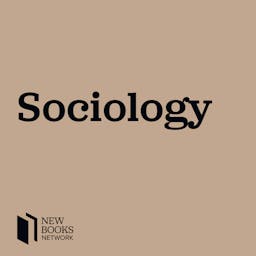
New Books in SociologyGabriella Coleman on Hackers Cultures (Plural!)Peoples & Things host, Lee Vinsel, and guest host, Paula Bialski, Associate Professor for Digital Sociology at the University of St. Gallen in St. Gallen, Switzerland, interview Gabriella Coleman, Professor of Anthropology at Harvard University, about her long career studying hacker cultures. Topics include how hacking has changed over time, the different colored “hats” used to describe different hacker ethoses, the aesthetic dimensions of hacking including how poorly written code leads to moral outrage, and how Biella may soon found a new field of Critical Mold Studies. Professor Coleman’s books include Coding Freedom: The Ethics and Aesthetics of Hacking and Hack...
2025-02-101h 26
New Books in AnthropologyGabriella Coleman on Hackers Cultures (Plural!)Peoples & Things host, Lee Vinsel, and guest host, Paula Bialski, Associate Professor for Digital Sociology at the University of St. Gallen in St. Gallen, Switzerland, interview Gabriella Coleman, Professor of Anthropology at Harvard University, about her long career studying hacker cultures. Topics include how hacking has changed over time, the different colored “hats” used to describe different hacker ethoses, the aesthetic dimensions of hacking including how poorly written code leads to moral outrage, and how Biella may soon found a new field of Critical Mold Studies. Professor Coleman’s books include Coding Freedom: The Ethics and Aesthetics of Hacking and Hack...
2025-02-101h 26
New Books in Science, Technology, and SocietyGabriella Coleman on Hackers Cultures (Plural!)Peoples & Things host, Lee Vinsel, and guest host, Paula Bialski, Associate Professor for Digital Sociology at the University of St. Gallen in St. Gallen, Switzerland, interview Gabriella Coleman, Professor of Anthropology at Harvard University, about her long career studying hacker cultures. Topics include how hacking has changed over time, the different colored “hats” used to describe different hacker ethoses, the aesthetic dimensions of hacking including how poorly written code leads to moral outrage, and how Biella may soon found a new field of Critical Mold Studies. Professor Coleman’s books include Coding Freedom: The Ethics and Aesthetics of Hacking and Hack...
2025-02-101h 26
New Books in TechnologyGabriella Coleman on Hackers Cultures (Plural!)Peoples & Things host, Lee Vinsel, and guest host, Paula Bialski, Associate Professor for Digital Sociology at the University of St. Gallen in St. Gallen, Switzerland, interview Gabriella Coleman, Professor of Anthropology at Harvard University, about her long career studying hacker cultures. Topics include how hacking has changed over time, the different colored “hats” used to describe different hacker ethoses, the aesthetic dimensions of hacking including how poorly written code leads to moral outrage, and how Biella may soon found a new field of Critical Mold Studies. Professor Coleman’s books include Coding Freedom: The Ethics and Aesthetics of Hacking and Hack...
2025-02-101h 26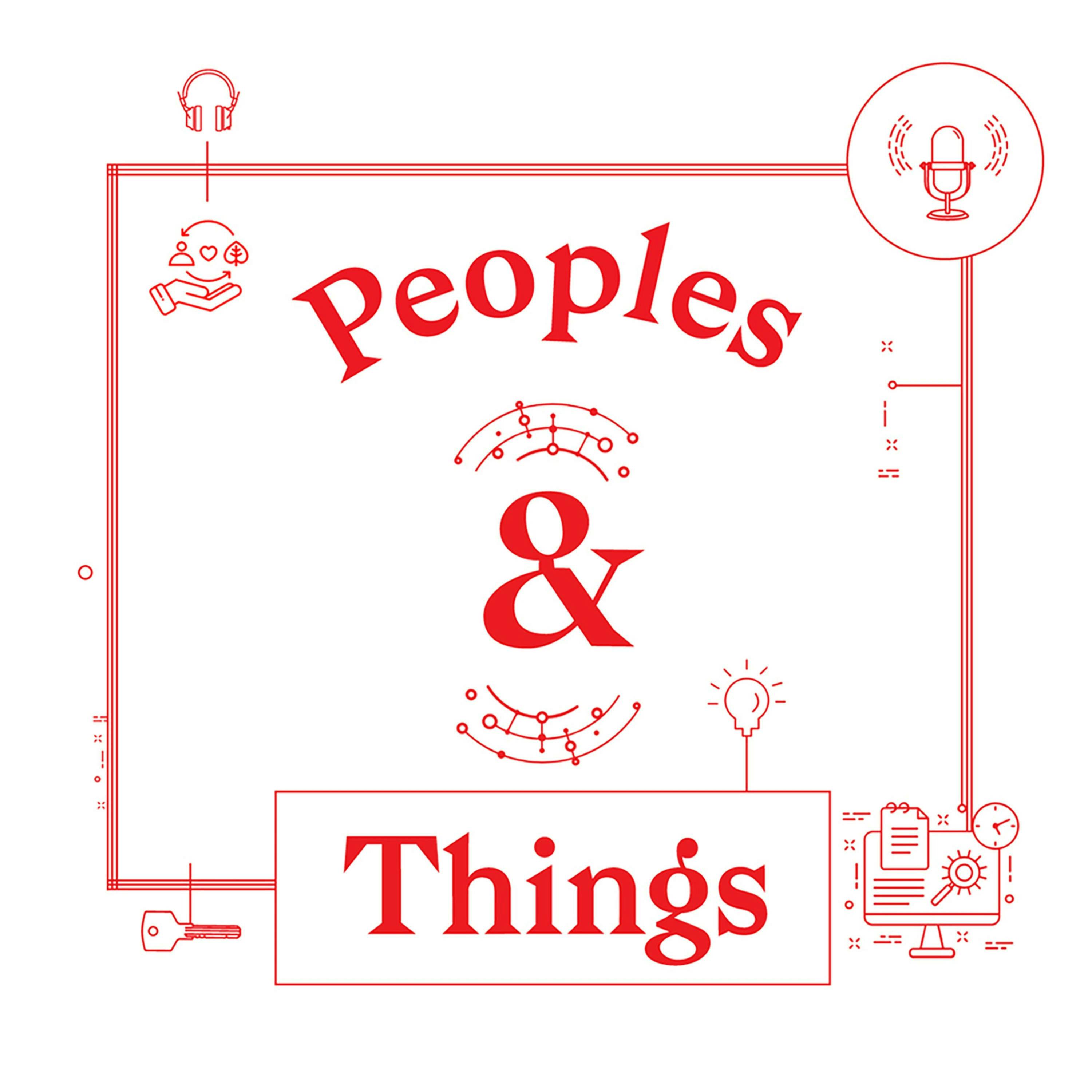
Peoples & ThingsGabriella Coleman on Hackers Cultures (Plural!)Peoples & Things host, Lee Vinsel, and guest host, Paula Bialski, Associate Professor for Digital Sociology at the University of St. Gallen in St. Gallen, Switzerland, interview Gabriella Coleman, Professor of Anthropology at Harvard University, about her long career studying hacker cultures. Topics include how hacking has changed over time, the different colored “hats” used to describe different hacker ethoses, the aesthetic dimensions of hacking including how poorly written code leads to moral outrage, and how Biella may soon found a new field of Critical Mold Studies. Professor Coleman’s books include Coding Freedom: The Ethics and Aesthetics of Hacking and Hack...
2025-02-101h 22
Hacker Cultures: The Conference PodcastEpisode 1 (2024) Charles Berret: Metis and the hackerIn this episode we hear Charles Berret from Linköping University characterize the cunning and craftiness via a concept from ancient Greek.The concept of 'metis' offers an especially effective means of characterizing the intelligence and technical practice of hackers. Metis, for the ancient Greeks, denoted the improvisational craftiness of a figure like Odysseus, whose intuitive understanding of the regularities in a particular system or situation facilitates acts of subversive cleverness. After all, it was Odysseus who devised the Trojan Horse, perhaps the first hack recorded in Western literature, and later the namesake of an actual variety o...
2024-12-1819 min
Hacker Cultures: The Conference PodcastEpisode 2 (2024) Janis Lena Meißner: From “makers-in-the-making” to “empowering hacks”Janis Lena Meißner from The Vienna University of Technology shares stories and insights from practical work with people who are usually not included in the Maker movement.Despite its promises of technology democratization, the Maker Movement still lacks diversity. To address this disparity, we might deliberately turn to „unexpected users“ of maker tools and reimagine core hacker values for subversive practices together with them. This episode is about hacking the ways in which Making is usually imagined to be performed. It offers reflections on the “Empowering Hacks” project, my long-term collaboration with two men with disab...
2024-12-1822 min
Hacker Cultures: The Conference PodcastEpisode 3 (2024) Sylvain Besençon: Information security and the care of open cryptography technologyWe are happy to hear back from Sylvain Besençon from University of Fribourg, who wraps up research we learned about in 2020 about caring for open source cryptography.This paper suggests a shift from information security as a matter of war to security as matter of care. Based on my 6-year long PhD research among a community of open source hackers and developers maintaining a crypto protocol, this paper deconstructs what I call the “warlike crypto imaginary” that often represents cryptography as a fascinating totem pole in the form of a blue lock. This paper tackles the rheto...
2024-12-1822 min
Hacker Cultures: The Conference PodcastEpisode 4 (2024) Victoria Neumann and Ana Custura: What does it mean to be part of a network? From silent contributor to engaged activist: the volunteer relay operators behind the Tor ProjectWho is operating the Tor network, and why? Victoria Neumann from Lancaster University tells us.Tor (acronym for The Onion Router) is one of the most famous projects focusing on online privacy and anonymity. Using the Tor Browser, one can access clear net websites without being tracked or traced or so-called "onion services (formerly hidden services)," which can only be accessed via the Tor network. Nowadays widely known for darknet marketplaces, it is also used by journalists, human rights and digital activists, spies, hackers, and ordinary people to circumvent state surveillance, internet blockades and to stay anonymous.
2024-12-1819 min
Hacker Cultures: The Conference PodcastExtra episode (2024) Paula, Andreas and Mace talk about the podcastYour hosts Paula Bialski, Andreas Bischof and Mace Ojala look back on three seasons of this podcast panel format. How did this get started, how does it work, and what has been fun so far?This episode is a live recording from Hacker Cultures! The Podcast Panel Season 3 panel organized at the European Association for the study of Science and Technology and Society for Social Studies of Science EASST/4S 2024 conference in Amsterdam on 2024-07-16. The hosts are Paula Bialski, Andreas Bischof and Mace Ojala. Audio production by Heights Beats...
2024-12-1831 min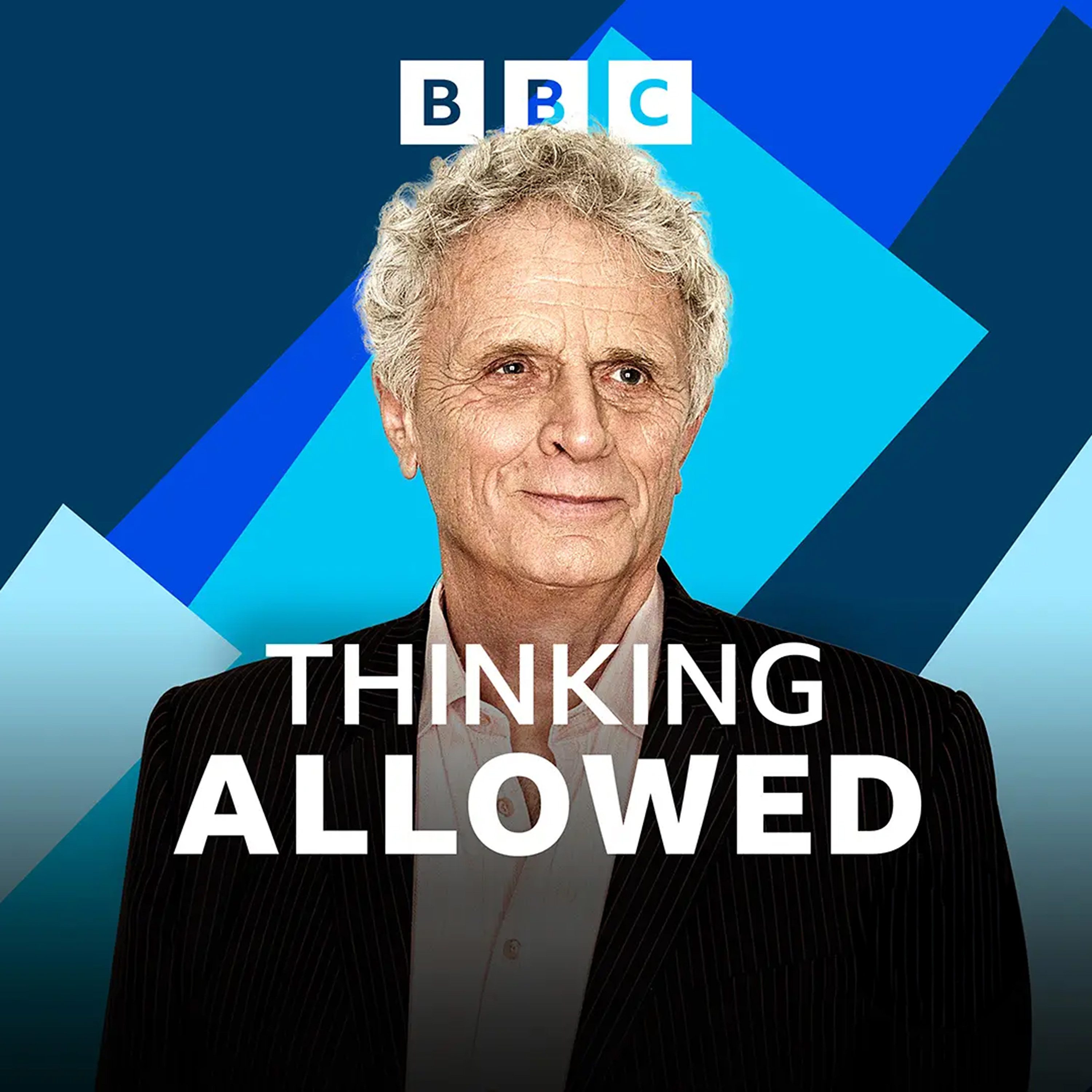
Thinking AllowedTech WorkersLaurie Taylor lifts the lid on a sector of the economy associated with wealth, innovation & genius. Mark Graham, Professor of Internet Geography at the Oxford Internet Institute, uncovers the hidden human labour powering AI. His study, based on hundreds of interviews and thousands of hours of fieldwork, is the first to tell the stories of this army of underpaid and exploited workers. Beneath the promise of a frictionless technology that will bring riches to humanity, the interviews he has conducted reveal a grimmer reality involving a precarious global workforce of millions labouring under often appalling conditions. Also, Paula Bialski...
2024-11-0528 min
Bridging the Gaps: A Portal for Curious Minds“Middle Tech: Software Work and the Culture of Good Enough” with Professor Paula BialskiContrary to the widespread belief that all technology is sleek, flawless, and cutting-edge, much of it isn’t designed to meet such high standards or be revolutionary. In many environments, the goal isn’t always to create perfect, futuristic products. Instead, the focus is often on functionality—producing tech that is good enough to meet immediate needs without striving for perfection. This mindset contrasts with the image of the tech world as a space of constant innovation, where every new development is expected to disrupt industries and change lives. Instead, in many cases, the aim is to simply keep things runnin...
2024-10-0746 min
Techtonic with Mark Hurst | WFMUPaula Bialski, author, "Middle Tech" from Aug 19, 2024
Paula Bialski, author, "Middle Tech: Software Work and Culture of Good Enough"
Tomaš Dvořák - "Game Boy Tune"
- "Mark's intro"
- "Interview with Paula Bialski" [0:08:14]
- "Mark's comments" [0:45:59]
Paula and Karol - "Expectations" [0:55:05]
https://www.wfmu.org/playlists/shows/143172
2024-08-2000 min
New Books in SociologyPaula Bialski on Middletech, Software Work, and the Culture of Good EnoughPeoples & Things host Lee Vinsel talks with Paula Bialski, an Associate Professor for Digital Sociology at the University of St. Gallen in St. Gallen, Switzerland, about her recent book, Middle Tech: Software Work and the Culture of Good Enough (Princeton UP, 2024). The pair talk about the art of ethnographic study of software work, and how, maybe, our world could do with a healthy dose of good enough-ness. They also scheme about some potential collaborations here on Peoples & Things, which you should definitely keep an eye out for. (You should also check out Paula’s folk pop group, Paula & Karol, whos...
2024-07-151h 11
New Books in AnthropologyPaula Bialski on Middletech, Software Work, and the Culture of Good EnoughPeoples & Things host Lee Vinsel talks with Paula Bialski, an Associate Professor for Digital Sociology at the University of St. Gallen in St. Gallen, Switzerland, about her recent book, Middle Tech: Software Work and the Culture of Good Enough (Princeton UP, 2024). The pair talk about the art of ethnographic study of software work, and how, maybe, our world could do with a healthy dose of good enough-ness. They also scheme about some potential collaborations here on Peoples & Things, which you should definitely keep an eye out for. (You should also check out Paula’s folk pop group, Paula & Karol, whos...
2024-07-151h 11
Princeton UP Ideas PodcastPaula Bialski on Middletech, Software Work, and the Culture of Good EnoughPeoples & Things host Lee Vinsel talks with Paula Bialski, an Associate Professor for Digital Sociology at the University of St. Gallen in St. Gallen, Switzerland, about her recent book, Middle Tech: Software Work and the Culture of Good Enough (Princeton UP, 2024). The pair talk about the art of ethnographic study of software work, and how, maybe, our world could do with a healthy dose of good enough-ness. They also scheme about some potential collaborations here on Peoples & Things, which you should definitely keep an eye out for. (You should also check out Paula’s folk pop group, Paula & Karol, whos...
2024-07-151h 09
New Books in Science, Technology, and SocietyPaula Bialski on Middletech, Software Work, and the Culture of Good EnoughPeoples & Things host Lee Vinsel talks with Paula Bialski, an Associate Professor for Digital Sociology at the University of St. Gallen in St. Gallen, Switzerland, about her recent book, Middle Tech: Software Work and the Culture of Good Enough (Princeton UP, 2024). The pair talk about the art of ethnographic study of software work, and how, maybe, our world could do with a healthy dose of good enough-ness. They also scheme about some potential collaborations here on Peoples & Things, which you should definitely keep an eye out for. (You should also check out Paula’s folk pop group, Paula & Karol, whos...
2024-07-151h 11
Peoples & ThingsPaula Bialski on Middletech, Software Work, and the Culture of Good EnoughPeoples & Things host Lee Vinsel talks with Paula Bialski, an Associate Professor for Digital Sociology at the University of St. Gallen in St. Gallen, Switzerland, about her recent book, Middle Tech: Software Work and the Culture of Good Enough (Princeton UP, 2024). The pair talk about the art of ethnographic study of software work, and how, maybe, our world could do with a healthy dose of good enough-ness. They also scheme about some potential collaborations here on Peoples & Things, which you should definitely keep an eye out for. (You should also check out Paula’s folk pop group, Paula & Karol, whos...
2024-07-151h 09
New Books in TechnologyPaula Bialski on Middletech, Software Work, and the Culture of Good EnoughPeoples & Things host Lee Vinsel talks with Paula Bialski, an Associate Professor for Digital Sociology at the University of St. Gallen in St. Gallen, Switzerland, about her recent book, Middle Tech: Software Work and the Culture of Good Enough (Princeton UP, 2024). The pair talk about the art of ethnographic study of software work, and how, maybe, our world could do with a healthy dose of good enough-ness. They also scheme about some potential collaborations here on Peoples & Things, which you should definitely keep an eye out for. (You should also check out Paula’s folk pop group, Paula & Karol, whos...
2024-07-151h 11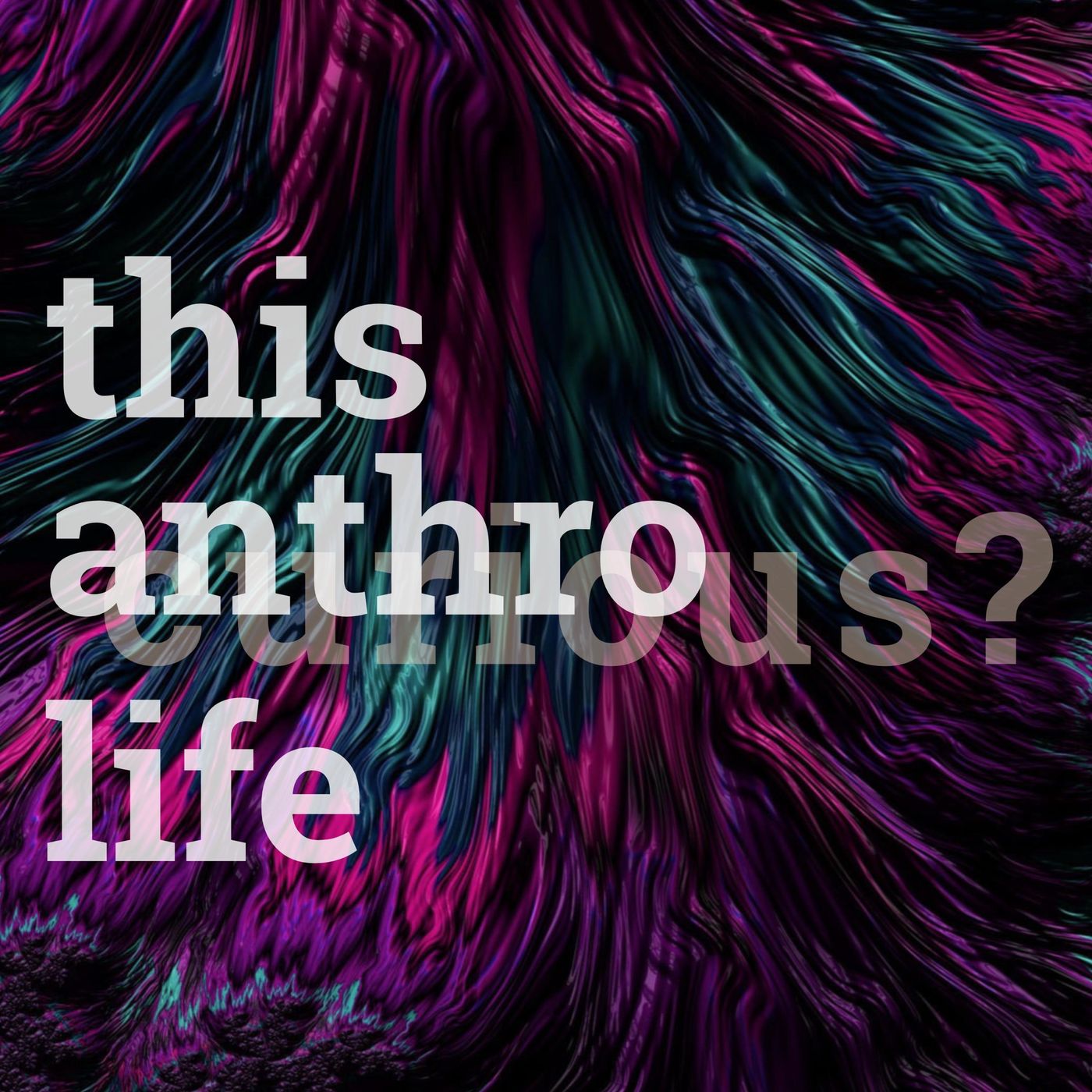
This Anthro LifeIs Software Good Enough?Delve into the world of software development, work culture, and the philosophy of 'good enoughness,' with Paula Bialski.I'm Adam Gamwell as a cultural anthropologist and award-winning media creator, I specialize in storytelling. My diverse background spans startups, nonprofits, cultural organizations, and Fortune 1000 companies, focusing on applied strategy, experience design, and human insights. My approach blends experiential research, like engaging with Peruvian quinoa farmers for climate change initiatives, with cutting-edge tools like AI and trends foresight. By leveraging big data alongside traditional ethnography, I align human needs with business goals, ensuring projects resonate profoundly.About...
2024-05-2053 min
Hacker Cultures: The Conference PodcastEpisode 7 (2022) Ola Michalec - Engineer-as-a-service. What is the future of engineering professionals in the digital world?We have the pleasure to chat with Ola Michalec, a Senior Research Associate at University of Bristol. Don't miss on our discussion with Ola in 2020.For decades, nuclear plants, power stations, or wastewater facilities were safe from the hype of digital innovations. These industries have traditionally been operated by industrial control systems fairly simple computers using binary logics to enable the movement and sensing of engineering machinery. Such technologies were disconnected from the internet and operated on-site by manual workers. With the advent of the Fourth Industrial Revolution (Schilin, 2020) engineering processes are about to gain sophisticated computing...
2022-10-0413 min
Hacker Cultures: The Conference PodcastEpisode 6 (2022) Annika Richterich - Chaos reigns. Hacktivism as health data activismWe speak with Annika Richterich from Maastricht University where she works as an Assistant Professor in Digital Cultures at the Faculty of Arts & Social Sciences. Annika was with us earlier in 2020, check out that episode too.This paper discusses how the Chaos Computer Club, a German hacker association, engaged in health data activism during the first two years of the COVID-19 pandemic (2020-2021).[1] Hackers technopolitical activism tends to be neglected in public debate, partly since hacking is often equated with cybercrime. Yet, civic hacking communities have shown a longstanding dedication to activism relevant to public interests and...
2022-10-0416 min
Hacker Cultures: The Conference PodcastEpisode 5 (2022) Maja Urbanczyk - Hacking decision-makingThis episode brings us Maja Urbanczyk who is a PhD Candidate at Norwegian University of Science and Technology.On more and more occasions, political decision-makers decide over software that is to be used by the public. In these situations, decision-makers rely on expert knowledge and risk assessment, in order to make informed decisions. For software decisions, the needed expertise comes from IT and IT-security experts and software developers also known as: hackers. The degree of trust that IT expertise receives from political decision makers is highly dependent on the contextual framing of the people holding the expertise...
2022-10-0415 min
Hacker Cultures: The Conference PodcastEpisode 4 (2022) Jan Schmutzler and Estrid Sørensen - Playing with fire. Re-identification hacks and organisational micro-politicsWe hear from research by PhD Candidate Jan Schmutzler and Professor Estrid Sørensen, both from Ruhr University Bochum.Data anonymisation has long been the central measure for social scientist to protect the privacy of the subjects from whom they collect data. Recent years computational methods have made it increasingly easy to combine data sets, which also makes it easier to re-identify individuals in anonymised datasets (Rocher et al, 2019). No standard procedure exists for testing if anonymised datasets are sufficiently protected against re-identification (Emam et al, 2015). In practice the method is re-identification attacks.We report f...
2022-10-0417 min
Hacker Cultures: The Conference PodcastEpisode 3 (2022) Tim Cowlishaw - Tiny tools and little loops. Software art as care-ful software practiceWe speak with Tim Cowlishaw, BAU, Doctoral Candidate at College of Arts & Design Barcelona.Whether as part of giant technology corporations or open-source software projects, software developers are increasingly responsible for defining, building, and maintaining the infrastructure of our social world, and much critical and anthropological attention has been paid to the ways in which the cultures and practices of software development influence the materiality and embedded politics of these infrastructures. However, less critical attention has been paid to software development deployed to less instrumental ends, in particular, creative and artistic practices that use software as a...
2022-10-0419 min
Hacker Cultures: The Conference PodcastEpisode 2 (2022) Cansu Güner - Hack the house! Reconfiguring domesticity in co-living spacesThis episode is with Doctoral Candidate Cansu Güner from School of Social Sciences and Technology at Technical University of Münich.This podcast is about hacking houses. Entrepreneurs with engineering backgrounds who live in co-living spaces tend to hack their houses either as part of a hackathon or via self-initiated hacking practices. Drawing from a one-year-long ethnography on hacking practices in co-living spaces in the Bay Area and Munich, I aim to answer the following questions: what would happen if the subjects of domestic work would also be equipped with the technological know-how and expertise that wo...
2022-10-0419 min
Hacker Cultures: The Conference PodcastEpisode 1 (2022) Maja-Lee Voigt - CTRL + F_eminist futures_. Hacking algorithmic architectures of cities to comeIn this episode we are joined by Maja-Lee Voigt, a Research Associate at the Centre for Digital Cultures at Leuphana University of Lüneburg.To this day it remains a question of power who is granted the right to visibly take up and claim urban space; both physically and virtually. A societal and literal Room of One's Own" (Woolf 1929) is still not a given for people who define as women and/or queer. Rather, it is not only floor plans and cityscapes in which gendered bodies hardly find unconfined spaces or representation; discursive and online realms often t...
2022-10-0417 min
Plik dźwiękowy - Audycje KulturalneKontrola Jakości: Paula & Karol „Lifestrange”https://audycjekulturalne.pl/wp-content/uploads/2021/07/Paula_i_Karol.mp3
Piąty album zespołu Paula & Karol to płyta pełna ciepłych dźwięków stworzonych przez grupę, w której najważniejsza jest przyjaźń. O krążku „Lifestrange”, perypetiach związanych z wydawaniem muzyki i znaczeniu relacji rozmawiamy w tym odcinku Kontroli Jakości.
Transkrypcja podcastu do pobrania pod tekstem poniżej.
Część materiału z płyty powstała jeszcze przed wybuchem pandemii. Niektóre teksty zmieniały się w odpowiedzi na niełatwą sytuację, która dotknęła wszystkich. Krążek „Lifestrange” stał się więc zapisem...
2021-07-3016 min
skrzatyWYWIAD: Paula i Karol o nowym albumie Lifestrange, swojej muzycznej rodzinie i synergii w pisaniu muzykiRozmowa z Paulą Bialski i Karolem Strzemiecznym, którzy w ramach swojego projektu właśnie wydają piąty w karierze album - Lifestrange. W wywiadzie m.in. o kulisach powstawania materiału z nowego krążka, o zadumie nad starszymi nagraniami, współpracy na dystans (Polska-Szwajcaria) oraz o tym, dlaczego granie w zespole przypomina im rodzinę, plemię, albo tworzenie zespołu pieśni i tańca.
2021-05-0536 min
Dreams Not Memes PodcastEpisode 256: Stay Curious and Stay Creative : A Conversation with Paula BialskiI spoke to my friend Paula Bialski, Paula is the sister to Rosa Loess ( Episode 241) and is currently living in Switzerland. Paula is an Associate Professor for Digital Sociology at the University of St. Gallen. She is an ethnographer of digital technologies, and has authored many books and articles around the topic. She is also a professional musician with the Warsaw-based band Paula & Karol. They have released the EP “Goodnight Warsaw” (2009), LP “Overshare” (2010), “Whole Again” (2012), Heartwash (2014), “Our Town” (2017), and the upcoming “Lifestrange” (Summer 2021). In our conversation Bialski and I discuss her work as a Professor, marketing yourself as a musician and life in...
2021-02-2435 min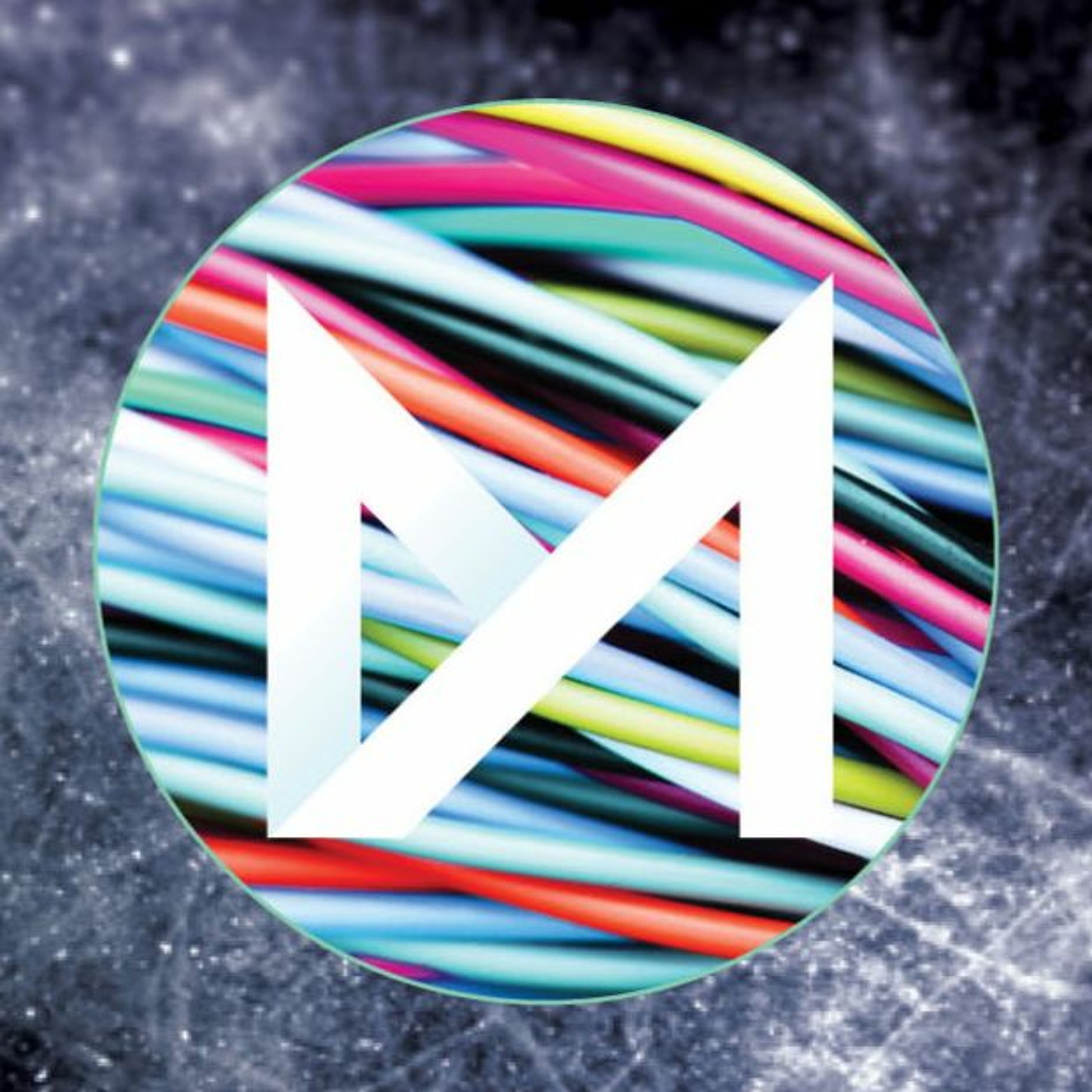
Vasari Research Centre for Art and TechnologyData Materiality Episode 3: Paula Bialski on Slow Software, Labour and Ethnographies of TechnologyIn this episode we speak with Paula Bialski, Associated Professor of Digital Sociology at University of St. Gallen in Switzerland. Paula’s research focuses on the impact of digital media on working cultures, communication and the concept of intimacy. In this podcast we discuss her current book project entitled Slow Software which is based on a two-year ethnographic study examining the operating modes and workplace cultures of software companies in Berlin. Paula’s ethnographic methods bring the human body and concepts like exhaustion or friendship into the mix as sometimes overlooked elements of digital materiality.
The interview for this episode was...
2020-11-1329 min
Hacker Cultures: The Conference PodcastEpisode 1 (2020): Morgan G. Ames - Throwback Culture: The Role of Nostalgia in Hacker Worlds This session's guest is Morgan G. Ames, who joins us from UC Berkely. There she is an assistant adjunct professor in the School of Information and interim associate director of research for the Center for Science, Technology, Medicine and Society. The maintenance of ‘hacker’ identities often involves the discussion of one’s origin story—the nostalgic rendering of the path that one took into programming and technical tinkering, involving the technologies and media of hackers’ childhoods. In her paper she explores the ways in which these memories are mobilized to do cultural work in contemporary technology worlds, especially among...
2020-09-0318 min
Hacker Cultures: The Conference PodcastEpisode 2 (2020): Minna Saariketo & Mareike Glöss - In the grey zone of hacking? Two cases in the political economy of software and the Right to RepairMinna Saariketo is a postdoc at the Department of Computer and Systems Sciences, Stockholm University. Mareike Glöss is a lecturer Department of Computer and Systems Sciences, Stockholm University. In their research, they address the ‘grey zone of hacking’: end users subverting software and hardware controls imposed by manufacturers. We discuss one empirical case in particular: farmers claiming the ‘right to repair’ of agricultural equipment. The ‘Right to Repair’ movement has brought together user...
2020-09-0222 min
Hacker Cultures: The Conference PodcastEpisode 3 (2020): Annika Richterich - Forget about the learning: On (digital) creativity and expertise in hacker-/makerspacesAnnika Richterich is an assistant professor in Digital Culture at Maastricht University (NL). Her research focuses on practices of collaboration, learning and innovation in hacking communities.Annika explains that hackers and makers are curious people. They tinker, try, and team up − driven by tech-political motives, entrepreneurial interests, or just for the fun of it. Their curiosity about digital technology and crafts makes them self-driven learners in these domains. To share their enthusiasm as well as required machines, hackers and makers worldwide have formed communities called hack-/hackerspaces and makerspaces. These are physical places where members engage in cr...
2020-09-0220 min
Hacker Cultures: The Conference PodcastEpisode 4 (2020): Alex Dean Cybulski - Hacker Culture Is Everything You Don't Get Paid For In the Information Security IndustryAlex Dean Cybulski is a PhD candidate at the University of Toronto's Faculty of Information. Presently, he is writing a dissertation on capture the flag competitions, play and games in hacker culture and the information security industry.In this session he will talk about the field he is studying – specifically Capture the flag (CTF). It is a competitive game in which players mimic the experience of discovering and exploiting vulnerabilities in information systems, hacking into simulated software and/or networks to retrieve data known as a ‘flag.’ CTF participants, often drawn from the information security and IT indust...
2020-09-0219 min
Hacker Cultures: The Conference PodcastEpisode 6 (2020): Stéphane Couture - Hacker Culture and Practices in the Development of Internet ProtocolsStéphane Couture is a Professor at the Faculté des arts et des sciences - Département de communication at the University of Montreal. Referring to previous work done on hacker culture and free and open source software, Stéphane's presentation will look at the cultures, practices, and power dynamics of the Internet Engineering Task Force (IETF) and its sister and peripheral organization, the Internet Research Task Force (IRTF). IETF is the main organization building Internet protocols, namely the formal specifications and standards that specify the rules and forms of computer communication on the Internet. He propos...
2020-09-0219 min
Hacker Cultures: The Conference PodcastEpisode 5 (2020): Jérémy Grosman - Algorithmic Objects, Algorithmic PracticesJérémy is a PhD student at the Faculty of Philosophy at the University of Namur in Belgium His work sits between computer science on the one hand and philosophy on the other. Jeremy’s talk today takes a deep dive into the daily practices of engineers (practices like implementations, experiments, publications). He says that these practices force engineers to complicate the separation between algorithms, on one side, and problems, on the other. His work focuses on a character named Robin, an engineer working on recommender systems, who he ethnographically observed in his research project. In t...
2020-09-0220 min
Hacker Cultures: The Conference PodcastEpisode 7 (2020): Ola Michalec - Hacking infrastructures: understanding capabilities of Operational Technology (OT) security workersOla is a research associate at the University of Bristol and is interested in the 'making of' technology, science and policy, specifically about the Cybersecurity of Critical National InfrastructuresFacilities like power plants, water pipes and railway stations underpin contemporary living standards across the world. For decades, they have been operated by Operational Technologies (OT), basic (yet sturdy!) computers without Internet access. People working in OT facilities are traditionally manual workers or engineers with training in safety.In this session, Ola presents the results of a qualitative study conducted between November 2019-January 2020, where her and...
2020-09-0219 min
Hacker Cultures: The Conference PodcastEpisode 8 (2020): Sylvain Besençon - Securing by hacking: maintenance regimes around an end-to-end encryption standardIn this session, we interview Sylvain Besençon a PhD student in anthropology at the University of Fribourg. In his presentation, he talks about internet standards, which are elementary and powerful bricks of the Internet infrastructure: they define how the Internet should work and help developers to code their pieces of software accordingly. However, regularly, there are some voices or hacks that destabilize them and open the door to radical uncertainties about the reliability of the software we use, especially when crucial information is at stake. Based on digital ethnography as well as interviews and observations at in...
2020-09-0218 min
Hacker Cultures: The Conference PodcastEpisode 9 (2020): R. Stuart Geiger & Dorothy Howard - “I didn’t sign up for this”: The Invisible Work of Maintaining Free/Open-Source Software CommunitiesR. Stuart Geiger calls himself an Ethnographer of computation and computational ethnographer, and is an Assistant Professor at the University of California, San Diego in the Department of Communication and the Haligiolu Data science Institute.Dorothy Howard is a Ph.D. student in Communication at UC San Diego, and her interests broadly span across the psychosocial and material effects of sociotechnical systems on society, and on worker's lives and subjectivities.In this session, Stuart and Dorothy will present findings about the work of maintaining community-based free and/or open-source software (F/OSS) projects, focusing on...
2020-09-0220 min
Programmers, Hackers and Hacks: the people and practices behind our machinesEpisode 1: Introducing the HackerOne of the centres of power in our societies lies in the hands of the hackers and programmers building and running the foundations we stand on. In this first episode, I will talk about the many faces of the hacker and why our reliance on them makes it increasingly important to learn about them.References for this episode: Magee, L., & Rossiter, N. (2015). Service Orientations. Data, Institutions, Labor., in Kaldrack, I., & Leeker, M. There is no Software, there are just Services. Luneburg, meson press. see: https://meson.press/books/there-is-no-software-there-are-just-services/Latour, B., (1999...
2020-03-2412 min
Programmers, Hackers and Hacks: the people and practices behind our machinesEpisode 2: My Road To Hacker StudiesWho am I? And why am I telling you guys about hackers and programmers? In this episode, I will tell you guys about where I’m coming from as a researcher and how I got so concerned with the digital societies we live in. There aren't any readings to go along with this episode, but if you haven't so far, do browse through https://hackcur.io/
2020-03-2419 min
Programmers, Hackers and Hacks: the people and practices behind our machinesEpisode 3: A brief history of the Silicon Valley In this episode, I want to give you a bit of a contextual history of around the culture of hacking and programming - by introducing to you the significance of a place called the Silicon Valley.References for this episode: 1. Ballmer going crazy on stage: https://hackcur.io/dealing-with-mini-steve-ballmers-at-work/2. Zuck and friend showing off their VR: https://www.youtube.com/watch?v=N-MkduVh0wM&t=196s3. Morozov, Evgeny. 2013. To save everything, click here: The folly of technological solutionism. Public Affairs.
2020-03-2419 min
Programmers, Hackers and Hacks: the people and practices behind our machinesEpisode 4: Researching HackersThis episode is now meant to really give you guys a look at the other research out there that study hackers and programmers - so I’ll briefly give you a background of where to really search once you want to write or learn more about this topic. References for this episode: 1. Lupton, Deborah. Digital Sociology. Routledge, 2014.2. Kelty, Christopher M. Two Bits: The Cultural Significance of Free Software. Duke University Press, 2008.3. Coleman, Gabriella. Hacker, Hoaxer, Whistleblower, Spy: The Many Faces of Anonymous. Verso Books, 2014.4. Ensmenger, Nathan L. The Computer Boys Take Over: Co...
2020-03-2413 min
Programmers, Hackers and Hacks: the people and practices behind our machinesEpisode 5: The Hacker Hacker and their HacksIn this episode, I want to address the elephant in the room - and talk about “the hack” or specifically what hacking is as a practice. It would be easiest to do this I think by looking through the lens of the typical ‘hacker’ - like the hackers you guys are imagining do hacking - and talk about the security hacker. References for this episode: 1. https://hackcur.io/category/anti-security/
2020-03-2416 min
Programmers, Hackers and Hacks: the people and practices behind our machinesEpisode 6: The Collectivity of SoftwareIn this episode I want to talk to you guys about how developers work together - and the way in which intimacy and creativity is a direct characteristic of the practice of programming or building software. References for this episode: 1. Graham, Paul. Hackers & Painters: Big Ideas from the Computer Age. Sebastopol, CA: O'Reilly Media, 2004.
2020-03-2415 min
Programmers, Hackers and Hacks: the people and practices behind our machinesEpisode 7: When Stuff Goes WrongIn this episode, I will explain how software development inherently runs on a culture of preventing and predicting stuff from going wrong. The reasons for this are the various forms of heterogeneity making up the sociotechnical system that is software.References for this episode: 1. https://insights.stackoverflow.com/survey/2019
2020-03-2317 min
Programmers, Hackers and Hacks: the people and practices behind our machinesEpisode 8: InequalitiesIn this episode, I will talk about inequalities, and in particular the regional inequalities that exist within a software production.References for this episode: 1. https://hackcur.io/category/inclusions-exclusions/
2020-03-2314 min
Programmers, Hackers and Hacks: the people and practices behind our machinesEpisode 9: Bonus Interview about Maintenance with Mace OjalaMace Ojala is a part-time lecturer at the IT University in Copenhagen and teaches tech-y courses around computing and networked infrastructures. I called him up to get him talking about computer maintenance, a topic that is largely forgotten. Mace's reading list for this episode: Jérôme Denis, David Pontille. Why do maintenance and repair matter?. Anders Blok, Ignacio Farías & Celia Roberts (eds.). The Routledge Companion to Actor-Network Theory, p. 283-293, 2019, 978-1-138-08472-8.Marisa Leavitt Cohn: Convivial Decay: Entangled Lifetimes in a Geriatric Infrastructure. CSCW '16: Proceedings of the 19th ACM...
2020-03-2321 min
Chaos Computer Club - 36C3: Resource Exhaustion (high quality mp4)Hack_Curio (36c3)Hacking and hackers can be hard to visualize. In the popular imagination, the figure alternates between a menacing, hooded figure or some sort of drugged-out and depressed juvenile hero (or perhaps a state-sponsored hacker). To counter such images, a group of us have spearheaded a new digitally-based video project, Hack_Curio that features hacker-related videos, culled from a range of sources, documentary film, newscasts, hacker conference talks, advertising, and popular film. In this talk, the Hack-Curio creators and builders will briefly discuss the purpose and parameters of Hack_Curio and spend most of the talk featuring our funniest, most compelling...
2019-12-2758 min
Chaos Computer Club - archive feed (high quality)Hack_Curio (36c3)Hacking and hackers can be hard to visualize. In the popular imagination, the figure alternates between a menacing, hooded figure or some sort of drugged-out and depressed juvenile hero (or perhaps a state-sponsored hacker). To counter such images, a group of us have spearheaded a new digitally-based video project, Hack_Curio that features hacker-related videos, culled from a range of sources, documentary film, newscasts, hacker conference talks, advertising, and popular film. In this talk, the Hack-Curio creators and builders will briefly discuss the purpose and parameters of Hack_Curio and spend most of the talk featuring our funniest, most compelling...
2019-12-2758 min
InclusionismShow #25 Inclusionism with Finn Brunton author of Digital CashJFK talks with Finn Brunton Associate Professor of Media, Culture, and Communication at New York University on his latest book Digital Cash: The Unknown History of the Anarchists, Technologists, and Utopians Who Created Cryptocurrency (Princeton, 2019)Finn Brunton is also the author of Spam: A Shadow History of the Internet (MIT Press, 2013), Obfuscation: A User’s Guide for Privacy and Protest with Helen Nissenbaum (MIT Press, 2015), Communication with Mercedes Bunz and Paula Bialski (University of Minnesota Press/Meson, 2019), and Digital Cash: The Unknown History of the Anarchists, Technologists, and Utopians Who Created Cryptocurrency (Princeton University Press, 2019) along with numerous articles and pa...
2019-10-0755 min
Thinking AllowedCouchsurfing - Trauma AdvocacyEver in need of a new way to travel? 'Couchsurfing', in the form of online social networking, allows users to travel with and stay at the homes of fellow users. It's just one example of how the internet aids face to face intimacy - sometimes amongst strangers. Paula Bialski talks to Laurie Taylor about her book 'Becoming Intimately Mobile' . Based on five years of ethnographic research amongst coach surfers and online hitchhiking website users, it documents new forms of human hospitality and connection. Also, trauma advocates in Croatia. Vanessa Pupavac and Ben Shephard reflect on the growth of compensation...
2012-11-0728 min